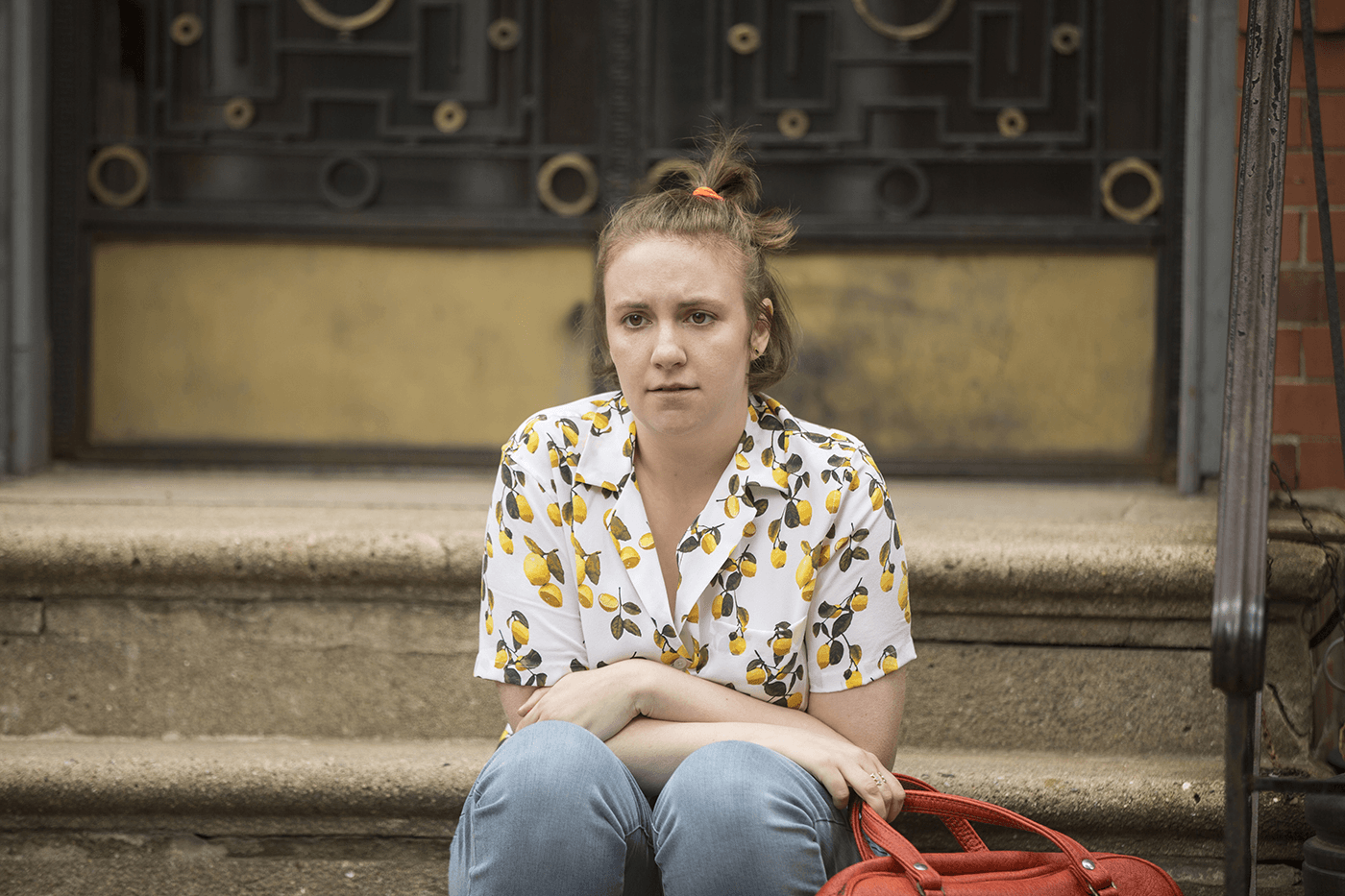
This piece contains significant spoilers for Girls’ “Painful Evacuation.”
After “American Bitch” stripped Girls’ world down to a single apartment, “Painful Evacuation” opened it back up. Sunday’s episode was one of the more overstuffed Girls installments in some time, making room not just for core characters like Marnie, Ray, Adam, and Jessa, but also the occasional emissaries from older generations who make this show more than just Young People Behaving Badly: Becky Ann Baker joined via FaceTime; Colin Quinn became the first member of the cast to say goodbye as the show heads into its final stretch. And yet Girls is ultimately Hannah’s show, so the takeaway from “Painful Evacuation” inevitably boils down to her.
Well, guys: Hannah’s pregnant.
We learn this in one of those perfect final-season flourishes, the return of a departed character for one last hurrah that makes up in sentimental value what it lacks in believability. (Girls is more frequently likened to independent film than other TV shows, but it does capitulate to traditional small-screen structure on occasion.) In this case, it’s Patrick Wilson’s hot doctor from “One Man’s Trash,” who treats Hannah for a UTI and casually drops the news. Having possibly forgotten just how chaotic her life is, he’d assumed she already knew. With Wilson, Riz Ahmed (it’s his baby), and Adam bringing her a harebrained scheme to turn their breakup into art, Hannah’s being haunted by the Ghost of Sexual Partners Past.
There are two obvious options here, and, perhaps for the first time in television history, they feel something close to equally likely. The first is abortion, so taboo on television that as recently as 2014 NBC infamously censored the word from a web trailer for Obvious Child. In recent years, however, the topic’s become an increasingly prominent subject of frank, emotional discussion, and not just on the relative Wild West of streaming and premium cable either: Broadcast networks like ABC and the CW have aired subplots that treat abortion as the serious yet matter-of-fact decision it is for millions of women.
Girls itself brushed on the topic in its second episode, airing in 2012. And yet the story wound up as a feint: Jessa’s pregnancy scare was just that, a scare — more an occasion for jokes about a character so flaky she’d be late to her own abortion than actual drama. At the time, it seemed even Lena Dunham had her limits; what made sense as a character decision in the context of the show read, in the face of broader cultural silence, as ever-so-slightly gun-shy. This raises the fascinating possibility that Girls may be late to a party that it helped start. The recent uptick in prominent story lines about complicated women and their messy lives has many sources, but Girls and its deafening buzz were certainly among them. Between its first season and its sixth, Girls may have cleared breathing room for itself as well as its spiritual successors. (In Season 4, Adam’s girlfriend Mimi-Rose had an abortion without telling him beforehand, but this is the first time the show is addressing the issue with a major character and over multiple episodes.)
The other, more extreme possibility is that Hannah makes the most irresponsible decision of her many, many irresponsible decisions and decides to keep the baby. “Childlessness is the natural state of the female author,” an interviewee tells her at the beginning of the episode, setting up the pregnancy as one final confrontation between Hannah’s self-image as a writer and her attraction to the lifestyles and experiences she might sacrifice in pursuit of her dream. Not coincidentally, this was one of the major themes of Hannah’s original team-up with Wilson: In the face of obvious wealth, Hannah delivered a solipsistic yet moving monologue about wanting to be happy rather than acquiring experiences for their literary shock value.
Lena Dunham and Jenni Konner are gifted storytellers, but I’ll confess that the possibility of Hannah Horvath, Brooklyn Mom, fills me with dread. Lack of consistency in both plot and character has always been one of Girls’ weaknesses, and Hannah committing to a child wouldn’t fit the fickle, hapless decision-making that marks virtually everything Hannah’s done thus far. Besides, Girls has been steadfastly committed to realism in its characters’ emotional lives, if not in the economics of freelance writing or the longevity of post-college friend groups. And the least realistic thing a single New York woman in her mid-20s living off magazine assignments would do is keep the baby.
Regardless of the outcome, Hannah’s pregnancy is a sign that with its final episodes, Girls is taking on higher-stakes storytelling, as befits a show that’s escalated from internships and fuck buddies to intercontinental moves and multiple marriages. Girls is grown up, and its protagonist is (finally) confronting grown-up choices.
Disclosure: HBO is an initial investor in The Ringer.